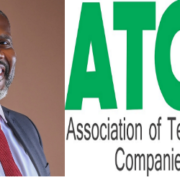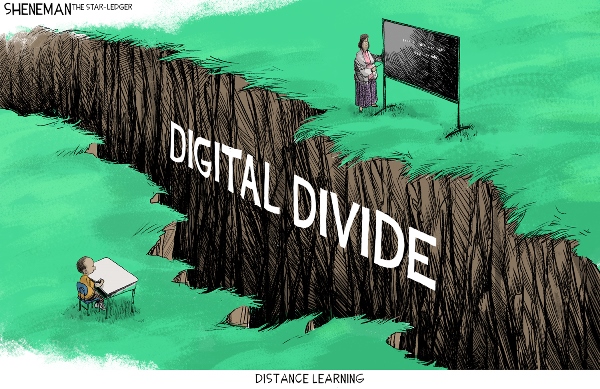By Tracy Yekaghe
The journey from being a Wealth Builder to a Political Appointee presents a compelling case for nominations that transcend political affiliations. This paradigm shift holds immense significance for the advancement of the Nigerian tech industry and, by extension, the nation’s overall development.
Now, more than ever, the selection process for ministerial and political roles necessitates a shift from mere ambition to rigorous evaluation based on factors such as proven track records and other credibility metrics. Consider a scenario where every member of the governing body, represented by distinct individuals, possesses a well-documented history of significant accomplishments and influence beyond their political aspirations. This approach aims to establish a political landscape that is characterized by heightened effectiveness and accountability.
RELATED: Bosun Tijani: Pioneering a renaissance in Nigeria’s technology, innovation ecosystem, and digital economy
Bosun Tijani, the newly appointed Minister of Communications, Innovation, and Digital Economy for Nigeria, boasts a noteworthy background. He stands as the co-founder and CEO of Co-Creation Hub, a prominent social innovation center situated in Nigeria. Tijani also holds the positions of CEO and Founder at Truppr, a prominent fitness brand. Furthermore, he serves as a Partner at Growth Capital, which marks Nigeria’s pioneering social innovation fund catering to promising early-stage businesses.

Tijani’s professional journey spans over 15 years, spanning both public and private sectors. Notably, he has contributed to esteemed entities such as Pera Innovation Network in the UK, Hewlett Packard in the EMEA region, and the International Trade Centre (UNCTAD/WTO) based in Geneva, Switzerland.
Tony Elumelu Foundation came for CcHUB
A pivotal moment occurred in 2012 when the Tony Elumelu Foundation injected a substantial $100,000 investment into CcHUB, the social innovation hub co-founded by Tijani. This financial support significantly fostered the growth and advancement of Tijani’s brainchild.
By demonstrating expertise and accomplishments in fields beyond politics, individuals seeking political appointments can offer a diverse range of perspectives and skills to the governance process. Such attributes not only enrich decision-making but also bolster public trust by indicating a genuine commitment to societal welfare.

According to an expert who expressed his thoughts in similar vein: Not everyone can be appointed a minister. Those who would eventually make the final list must see the opportunity to serve their country at the ministerial level as a major recognition and must then devote themselves strictly to serving Nigeria. They must not end up as ministers looking out only for narrow, ethnic and geographical interests. He added.
The tweet saga
However, Tijani’s past tweet, in which he expressed criticism towards the government, resurfaces subsequent to his nomination by President Bola Ahmed Tinubu as a ministerial candidate. Among the controversial statements he made was a response, dated July 23, 2019, to various individuals. In the tweet, he remarked, “It is becoming the norm. Tinubu fed them that rubbish narrative with his ‘serving power a la carte’ wisdom. Go invest your time and money into your business if you want to propagate such a rubbish narrative.”
In the wake of this revived tweet, social media users engaged in discussions surrounding the matter. One user, identified as #Optimistic Ade, questioned Tijani’s prior stance, highlighting, “Do you now concur that power is not dispensed a la carte and that the narrative is not without merit? I find it gratifying that the efforts invested by you and your peers in shaping Tinubu’s digital economy policy have yielded results. Congratulations, Dr. Bosun.”
During the process of Tijani’s senatorial screening for his ministerial candidacy, Senator Abdulfatai Buhari, representing Oyo North Senatorial District, raised inquiries. He referred to a tweet dated July 21, 2019, in which Tijani expressed dissatisfaction with the Nigerian passport and the nation itself. Senator Buhari asked the nominee to clarify his current sentiments towards Nigeria and its passport.
In response, Tijani addressed the Senate, expressing his fervent dedication to Nigeria’s progress and development. He explained that his earlier tweet emerged from a moment of frustration stemming from an encounter at the Chinese Embassy. Tijani candidly admitted that his tweet was an expression of anger, providing context for his initial statement.
The way forward
The journey from being a Wealth Builder to a Political Appointee presents a compelling case for nominations that transcend political affiliations. This paradigm shift holds immense significance for the advancement of the Nigerian tech industry and, by extension, the nation’s overall development.
By recognizing and appointing individuals based on their merit, expertise, and track record rather than their political connections, the Nigerian tech industry stands to gain immensely. Appointees with a background in wealth creation bring a wealth of experience in entrepreneurship, innovation, and strategic thinking. Their ability to navigate complex business landscapes and drive results can greatly contribute to the growth and competitiveness of the tech sector.
Moreover, appointing individuals with proven success outside of politics sends a powerful message about the government’s commitment to fostering a conducive environment for innovation. This can attract both local and international investors, fueling a surge in investment and partnership opportunities within the tech ecosystem. As deserving nominations rise to prominence, it inspires a culture of excellence and dedication that transcends political considerations and focuses on collective progress.
The Nigerian tech industry’s growth depends on tapping into a diverse pool of talent, and recognizing non-political achievers plays a pivotal role in achieving this. These individuals can infuse fresh perspectives, expertise and a dynamic approach that revitalizes the industry, fosters collaboration, and accelerates technological advancements.





























